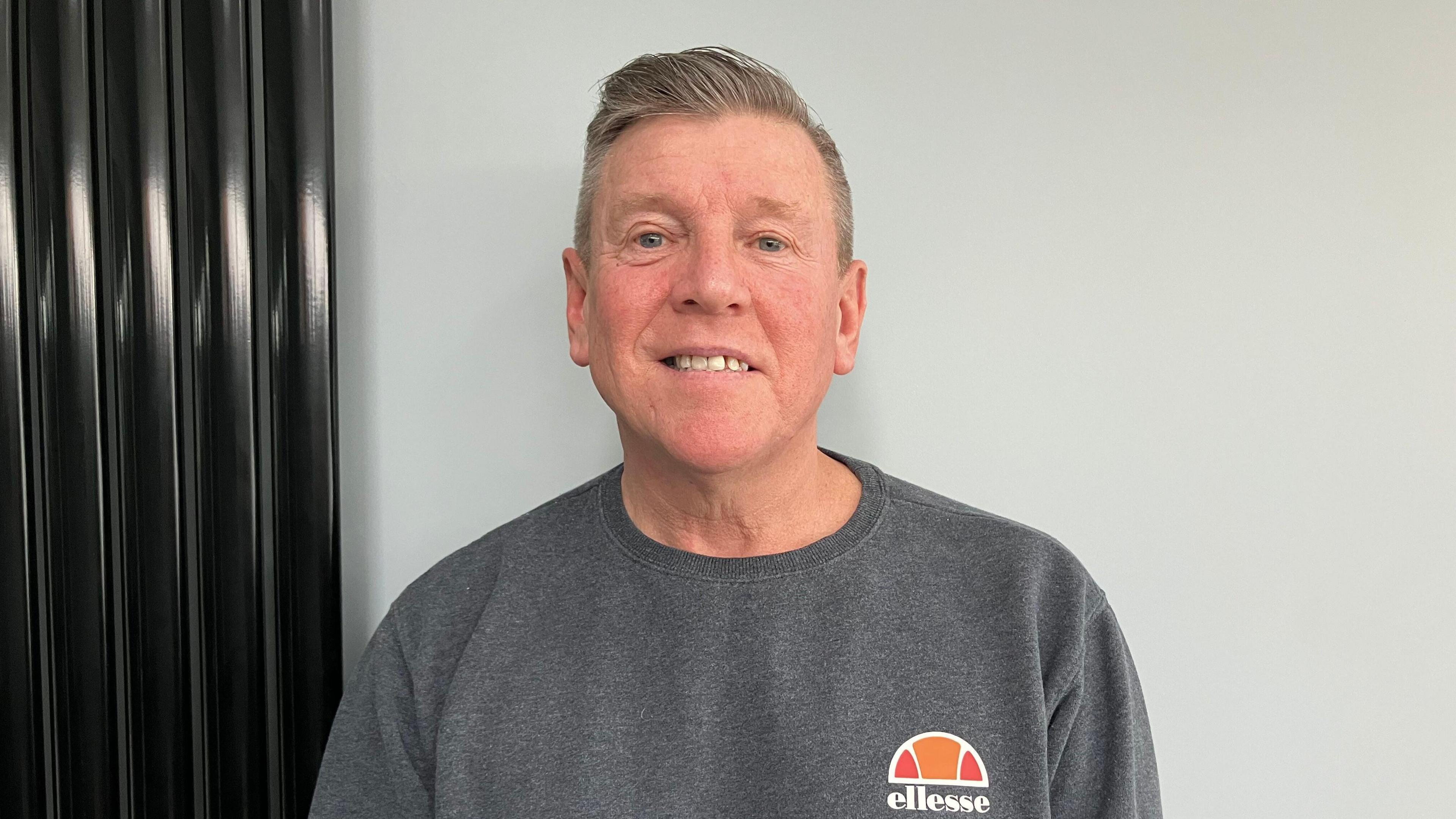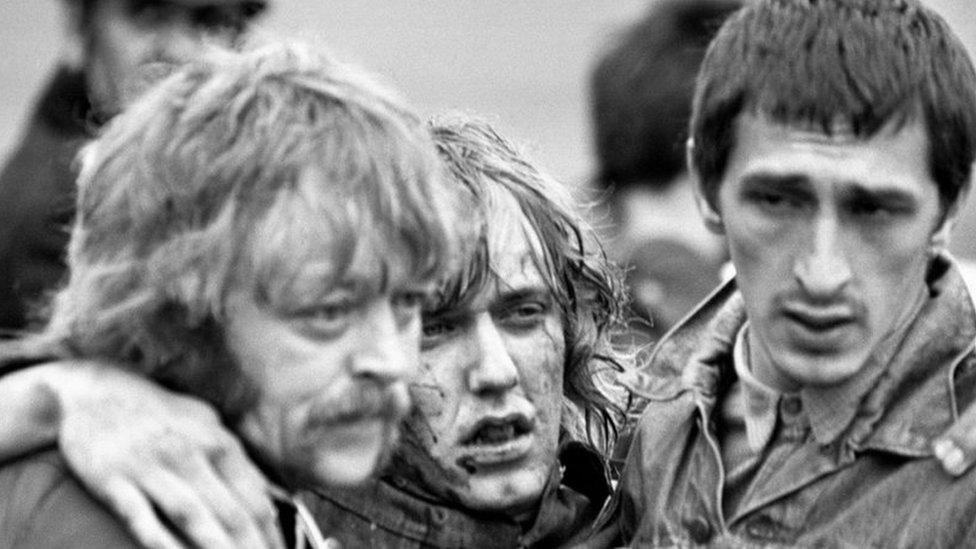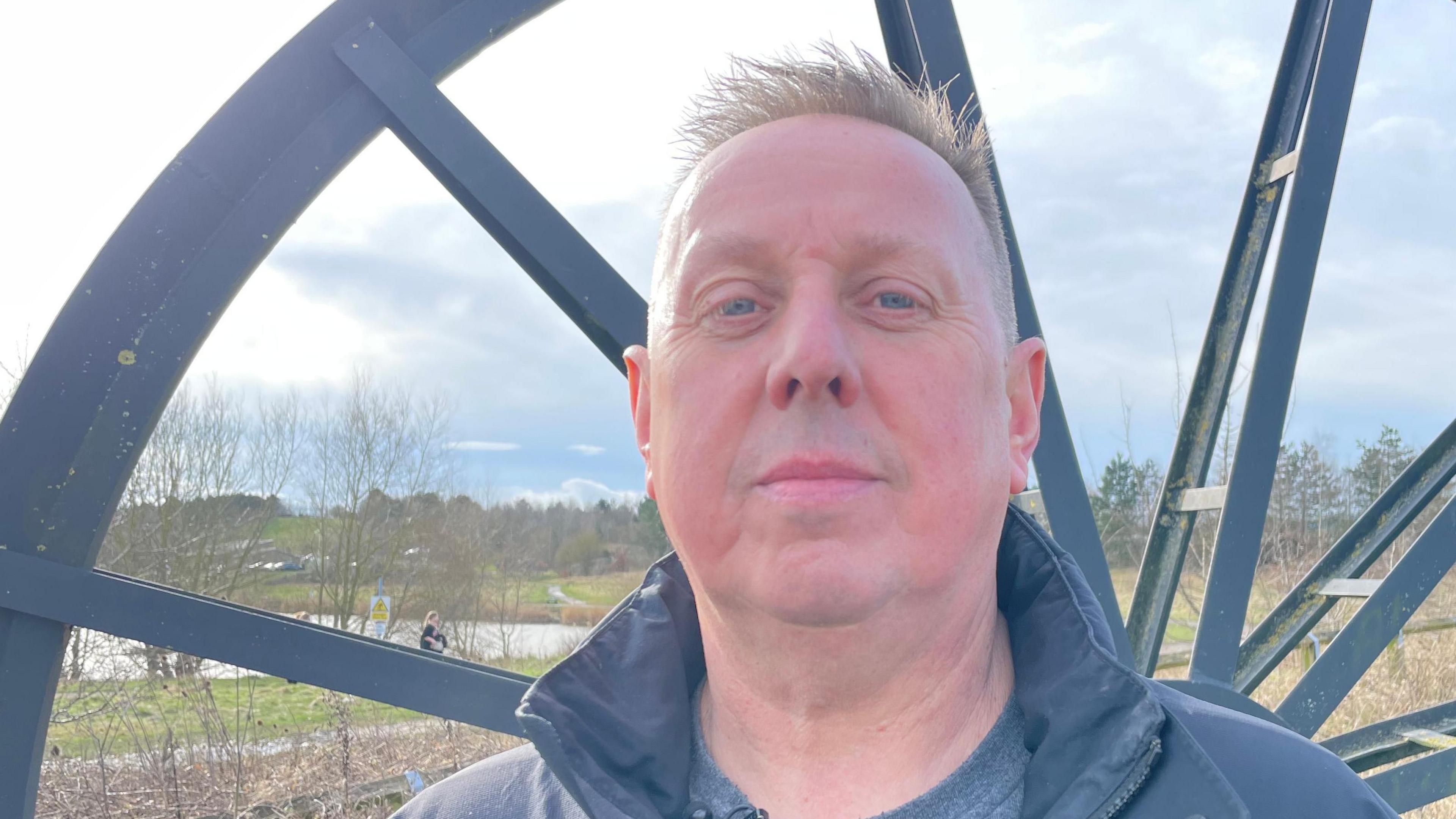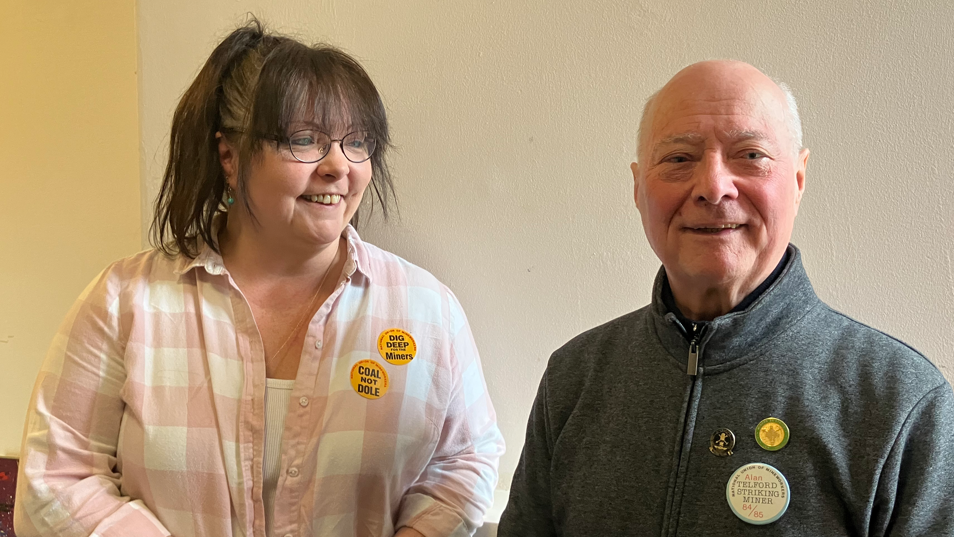Miner recalls facing daily insults during strikes

Dave Meuse, who was 26 at the time, kept working at Warwickshire's Daw Mill Colliery during the 1984-5 strikes
- Published
A miner who continued to work during the 1984-5 strikes has recalled the “intimidating” experience of being called names every day as he went to work.
The strikes began 40 years ago this month and pitted thousands of miners and their trade union against then prime minister Margaret Thatcher and her Conservative government.
Dave Meuse, who was 26 at the time, carried on working at Daw Mill Colliery, external near Arley in Warwickshire.
He said many miners who kept working would have gone on strike, but they were upset that the action had gone ahead without a national ballot.
“It was just the fact that they were being told what to do, rather than being able to make their own minds up,” Mr Meuse told BBC CWR.
'Banging on the windows'
The National Union of Mineworkers declared a national strike on 12 March 1984, after walkouts in Yorkshire and Stirling earlier in the month.
Arthur Scargill, then the NUM leader, declined to hold a national ballot on strike action and this became a divisive issue among some miners.
Mr Meuse recalls being called a scab “everyday” by people on picket lines as he got the bus to work, despite a heavy police presence.
Those who had not joined the strike were labelled scabs for what was seen as a betrayal of the working class.
“It was still a bit intimidating when you were driving by and people were banging on the windows, calling you names,” he said.
“There was the odd thing thrown, but not a lot, because of the police presence.”
Forty years on, he says he would still make the same decision now.
“It was strange because most of the men going to work kept saying: ‘Give us the ballot. If we get the ballot, we’ll be on strike.’ ”
Follow BBC West Midlands on Facebook, external, X, external and Instagram, external. Send your story ideas to: newsonline.westmidlands@bbc.co.uk, external
Related topics
More on the strike anniversary
- Published2 March 2024

- Published6 March 2024

- Published6 March 2024
